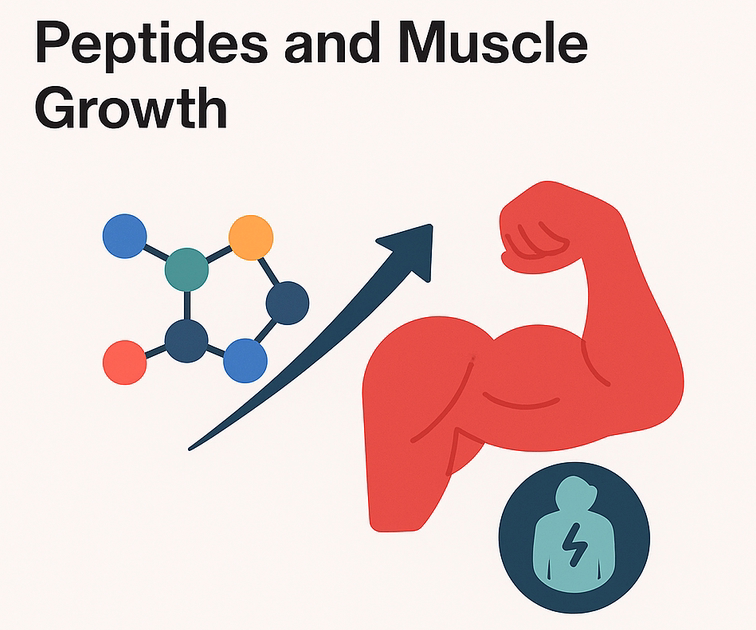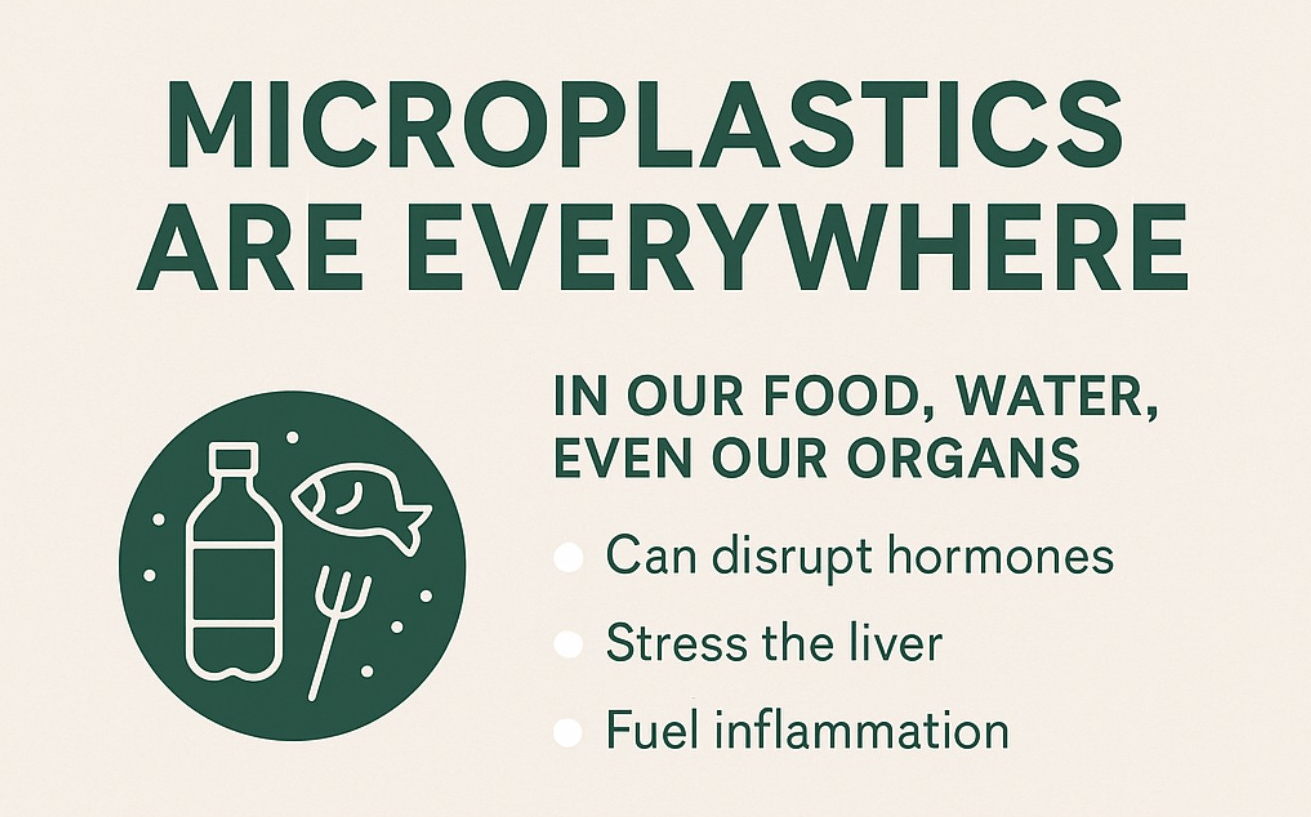How Peptides Support Muscle Growth, Weight Loss, and Metabolic Health
In New York City, wellness is no longer just about looking good—it’s about functioning at a higher level. Busy schedules, chronic stress, disrupted sleep, and long workdays place constant demands on the body. As a result, more people across Manhattan and NYC are exploring advanced, medically guided solutions that support performance, body composition, and long-term metabolic health.
One of the most promising tools to emerge in this space is peptide therapy.
Peptides have gained attention in integrative and regenerative medicine for their ability to support muscle growth, fat loss, energy, and metabolic regulation—without relying on harsh stimulants or one-size-fits-all hormone replacement. When used appropriately and under medical supervision, peptides work with the body’s natural signaling systems rather than overriding them.
This article explains how peptide therapy works, why it’s becoming increasingly
popular in NYC wellness clinics, and how peptides may support muscle development, weight loss, and overall metabolic health.
What Are Peptides?
Peptides are short chains of amino acids—the same building blocks that form proteins like collagen, insulin, and growth hormone. Unlike larger proteins, peptides act primarily as messenger molecules, telling specific cells how to behave.
Your body naturally produces peptides, but levels can decline due to:
- Aging
- Chronic stress
- Poor sleep
- Inflammation
- Hormonal imbalance
- Metabolic dysfunction
Peptide therapy helps restore or enhance these signals, allowing the body to repair tissue, regulate appetite, improve metabolic efficiency, and optimize recovery.
For many NYC patients juggling demanding careers, fitness goals, and limited recovery time, this targeted approach feels more sustainable than extreme dieting or aggressive interventions.

Peptides and Muscle Growth: Strength, Recovery, and Resilience
Loss of muscle mass doesn’t only affect athletes. Many adults in Manhattan notice gradual declines in strength, slower recovery from workouts, or joint discomfort that limits consistency in training.
Certain peptides support muscle development by enhancing the body’s natural growth hormone pathways—without directly introducing synthetic hormones.
How Peptides Support Lean Muscle
When growth hormone signaling improves, several downstream effects occur:
- Increased protein synthesis for muscle repair
- Faster recovery after workouts or physical strain
- Improved endurance and reduced muscle fatigue
- Support for connective tissue, joints, and tendons
For NYC professionals who train before work, after long shifts, or only a few times per week, peptides may help maximize recovery and reduce the risk of overuse injuries.
Rather than pushing the body harder, peptide therapy helps the body recover smarter.
Peptides and Weight Loss: Addressing the Biology Behind Fat Gain
Weight loss is one of the most common reasons patients in NYC explore peptide therapy—but not for cosmetic reasons alone. Many individuals struggle with stubborn weight despite eating well, exercising regularly, and maintaining an active lifestyle.
This often points to hormonal and metabolic resistance, not a lack of discipline.
Appetite Regulation and Satiety
Some peptides influence appetite-regulating pathways by mimicking or enhancing natural satiety hormones. These signals help the brain recognize fullness more accurately.
Patients often report:
- Reduced cravings
- Less constant food noise
- Feeling satisfied with smaller portions
- Fewer late-night or stress-driven eating episodes
For people navigating high-pressure work environments in NYC, this appetite stability can be transformative.
Fat Loss Without Muscle Loss
Other peptides promote fat metabolism by increasing lipolysis—the breakdown of stored fat—while preserving lean muscle mass. This is critical for maintaining metabolic health long term.
Potential benefits include:
- Reduction in visceral fat
- Improved body composition
- Better energy during calorie reduction
- Improved sleep quality, which supports fat loss
Unlike crash diets that slow metabolism, peptide-supported weight loss focuses on metabolic efficiency, not deprivation.
Peptides and Metabolic Health: Optimizing the Foundation
Metabolic health affects far more than body weight. It influences energy levels, mental clarity, blood sugar regulation, inflammation, and long-term disease risk. Peptides help fine-tune these systems at a cellular level.
Insulin Sensitivity and Blood Sugar Balance
Insulin resistance is common—even among active adults. Certain peptides help improve how cells respond to insulin, allowing glucose to be used efficiently for energy rather than stored as fat.
This may lead to:
- More stable blood sugar
- Fewer energy crashes
- Improved response to exercise and nutrition
- Reduced metabolic strain
Mitochondrial Support and Energy Production
Mitochondria are responsible for producing energy inside your cells. When they’re impaired, fatigue and brain fog often follow.
Some peptides support mitochondrial function, helping improve stamina, focus, and overall vitality—key benefits for busy NYC lifestyles.
Why Peptide Therapy Fits Modern NYC Wellness Care
In Manhattan and across NYC, medspas and integrative clinics are evolving beyond surface-level treatments. Patients increasingly want care that improves how they feel, not just how they look.
Peptide therapy integrates naturally with services such as:
- Medical weight loss programs
- Hormone optimization
- Body composition and fat-reduction treatments
- Aesthetic and regenerative therapies
- Longevity and preventive wellness care
At Meraki Integrative, peptide therapy is approached as part of a broader, medically guided wellness strategy—never as a standalone or “quick fix.”
Safety, Supervision, and Expectations
Peptides are powerful tools, but they are not shortcuts.
Important considerations include:
- Medical evaluation before starting therapy
- Individualized dosing and protocols
- Lab monitoring when appropriate
- Alignment with lifestyle factors like sleep, nutrition, and movement
When patients understand what peptides can—and cannot—do, outcomes are safer, more predictable, and more sustainable.
Cited Sources
- National Institutes of Health (NIH). Peptides as signaling molecules in metabolic regulation
- Cleveland Clinic. Growth hormone and its role in metabolism and body composition
- Harvard Health Publishing. The relationship between metabolism, aging, and energy balance
Peptide Therapy FAQs
What is peptide therapy?
Peptide therapy uses short chains of amino acids to support the body’s natural signaling processes. Peptides act as messengers that help regulate functions such as muscle repair, fat metabolism, appetite, and metabolic balance.
Is peptide therapy legal in New York City?
Yes. When prescribed and supervised by a licensed medical provider, peptide therapy is legally offered in NYC as part of integrative and wellness-focused care.
Can peptide therapy help with weight loss?
Peptides may support weight loss by regulating appetite, improving insulin sensitivity, and promoting fat metabolism while preserving lean muscle mass. Results vary based on individual health factors and lifestyle.
Do peptides replace diet and exercise?
No. Peptides are designed to complement healthy habits, not replace them. Patients who combine peptide therapy with proper nutrition, movement, and sleep tend to see the best outcomes.
Are peptides the same as hormones?
No. Peptides influence the body’s natural hormone signaling rather than directly replacing hormones. This allows for more targeted and physiologic effects.
How long does it take to see results from peptide therapy?
Some patients notice improvements in energy or appetite within weeks, while changes in body composition or muscle recovery may take longer. Results depend on the specific peptides used and individual response.







